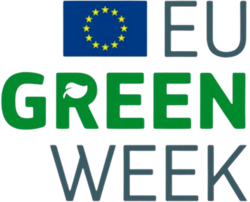
EU Green Week 2025
Why companies must invest in carbon accounting now – and how BearingPoint leverages SAP Sustainability for customers

Why companies must invest in carbon accounting now – and how BearingPoint leverages SAP Sustainability for customers

This year’s EU Green Week, held in Brussels under the theme “Clean, competitive, circular,” sent a clear message: Companies must adopt comprehensive, standardized, and automated carbon accounting practices—especially for Scope 3 emissions across the value chain.
Regulatory frameworks such as the Corporate Sustainability Reporting Directive (CSRD), European Sustainability Reporting Standards (ESRS), and the Carbon Border Adjustment Mechanism (CBAM) are driving a fundamental shift. Companies are now expected to provide transparent, verifiable CO₂ data at the product and process level.
EU Green Week 2025 made it clear: Carbon accounting is no longer optional—it’s a business imperative. Organizations that invest now in integrated solutions like SAP SFM, SDX, SCT, and Green Ledger will gain a competitive edge through compliance, transparency, and actionable insights across their entire value chain.